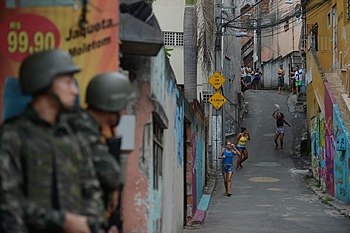sonakshisinha.net – Brazil, known for its vibrant culture and stunning landscapes, is also home to some of the most complex urban environments in the world. The country faces significant challenges related to crime, particularly in its sprawling cities and favelas. These informal settlements, often lacking basic infrastructure and government services, are hotspots for various criminal activities. Understanding the dynamics of crime in these areas is crucial for developing effective policies and interventions.
The Urban Crime Landscape
In Brazil’s urban centers, crime is a multifaceted issue influenced by socio-economic inequalities, political factors, and historical legacies. Cities like Rio de Janeiro and São Paulo experience high rates of violence, including homicides, armed robberies, and drug trafficking. The concentration of wealth and poverty in close proximity creates environments ripe for criminal activity.
The Reality of Favelas
Favelas, or informal settlements, are a prominent feature of Brazil’s urban landscape. These areas are characterized by inadequate housing, limited access to public services, and high levels of poverty. Due to the absence of formal governance, favelas often fall under the control of criminal organizations, including drug cartels and gangs. These groups exert significant influence, often providing security and social services in the absence of the state.
Law Enforcement Challenges
Policing in Brazil’s urban areas, particularly in favelas, is fraught with challenges. Police forces are often underfunded, poorly trained, and accused of corruption and excessive use of force. This has led to a lack of trust between law enforcement and local communities, complicating efforts to maintain order and safety. Initiatives aimed at community policing and police reform are critical for improving this relationship and enhancing security.
Social and Economic Factors
Crime in Brazil’s urban areas is deeply intertwined with socio-economic factors. High unemployment rates, lack of educational opportunities, and inadequate social services contribute to the cycle of poverty and crime. Addressing these underlying issues is essential for reducing crime rates and improving the quality of life for residents.
Innovative Approaches and Solutions
To tackle urban crime effectively, Brazil has implemented several innovative approaches. Programs focusing on social inclusion, education, and economic development within favelas have shown promise in reducing crime and improving community resilience. Additionally, partnerships between government agencies, NGOs, and local communities are crucial for sustainable progress.
Conclusion
Addressing crime in Brazil’s urban landscapes and favelas is a complex endeavor requiring a holistic approach. By focusing on socio-economic development, improving law enforcement practices, and fostering community engagement, Brazil can work towards creating safer and more equitable urban environments. The journey is challenging, but with concerted efforts, substantial progress can be made.
